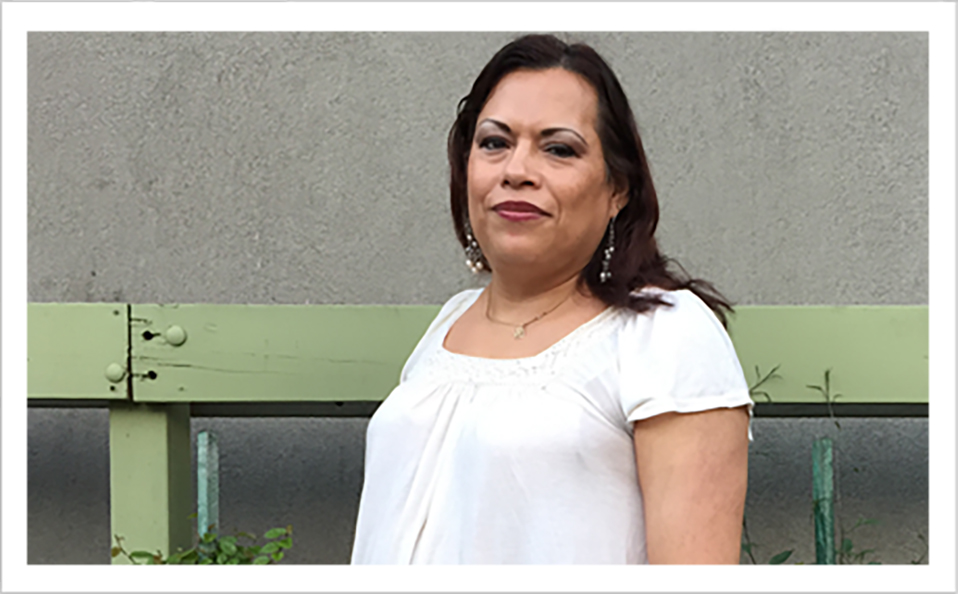
Claudia Cabrera
Claudia Cabrera started working HIV prevention shortly after coming to the United States. A native of Guatemala City, Guatemala—Claudia arrived in San Francisco in 2001. She quickly found refuge at Instituto Familiar de la Raza (IFR), a community based organization that offers culturally–based health and wellness promotion within the Latino community. Over the course of her journey in San Francisco, Claudia has been homeless countless times from being kicked out of her home due to her gender identity. Claudia first attended the Chicas Trans Program at IFR—an interactive peer support group for transgender women—and within a year, she landed a job as a health educator at IFR—a part of her new family in San Francisco.
Today, Claudia is the Transgender Services Coordinator for Si a La Vida at IFR, which provides integrated HIV services based on the community’s needs. Although most clients come in for non–HIV services such as immigration services, hormone therapy, or information on accessing medical care—Claudia emphasizes the importance of HIV prevention to each client. Sometimes her role requires her to meet community members where they are at. She regularly meets women working in the sex trade, distributing condoms, and talking about ways to stay safe, to commercial sex workers as a form of risk reduction.
Claudia believes that there are bigger issues that need to be addressed in order to better serve Latina Trans Women. For one, she notes, mental health within the Trans community is often overlooked and highly stigmatized—particularly in the realm of low self–esteem and undertreated depression. Many of the clients she works with have been kicked out of their homes at a young age and therefore never finished school. The lack of educational opportunities for many of these women at a young age have long lasting negative effects on these women such as limited employment opportunities. At the larger institutional level, Claudia believes that the law enforcement need better education and training on how to engage with trans women; and that housing needs to be addressed more fully.
Since arriving in San Francisco from Guatemala, Claudia has remained devoted to her community. As a political refugee, she understands the difficulty and hardship many individuals face when leaving their native country, and having to navigate the new one, especially as a trans women. She wishes that everyone would understand that her identity is not a choice, “We feel, we cry, we have families. People think that we choose to be who we are. Being Trans is like the color of my eyes. I was born that way.”



